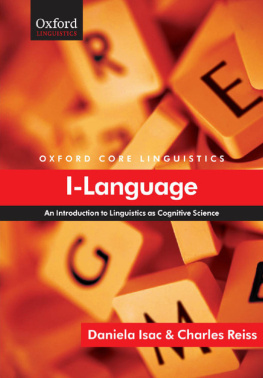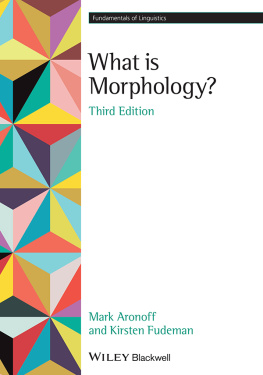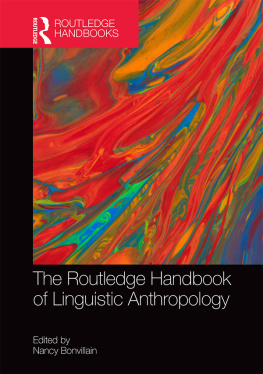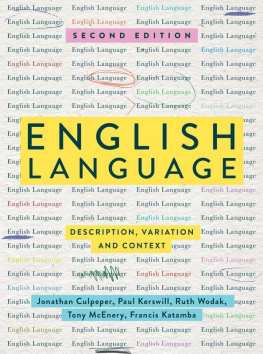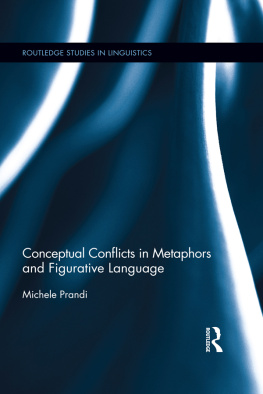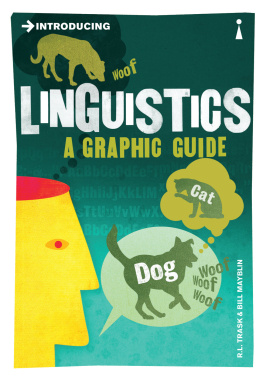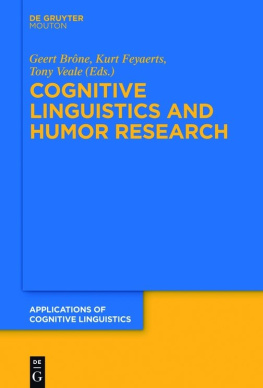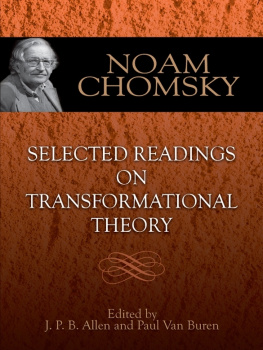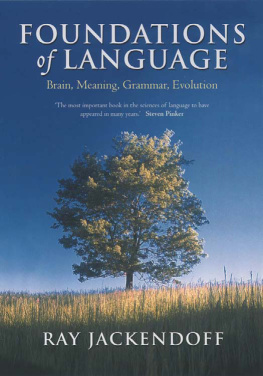
I-Language
An Introduction to Linguistics as Cognitive Science
OXFORD CORE LINGUISTICS
GENERAL EDITOR
David Adger, University of London
PUBLISHED
Core Syntax: A Minimalist Approach
David Adger
I-Language: An Introduction to Linguistics as Cognitive Science Daniela Isac and Charles Reiss
IN PREPARATION
Core Semantics
Gillian Ramchand
Introduction to Theoretical Linguistics
Peter Svenonius
I-Language
An Introduction to Linguistics
as Cognitive Science
Daniela Isac
and Charles Reiss
Great Clarendon Street, Oxford OX2 6DP
Oxford University Press is a department of the University of Oxford.
It furthers the Universitys objective of excellence in research, scholarship, and education by publishing worldwide in
Oxford New York
Auckland Cape Town Dar es Salaam Hong Kong Karachi
Kuala Lumpur Madrid Melbourne Mexico City Nairobi
New Delhi Shanghai Taipei Toronto
With offices in
Argentina Austria Brazil Chile Czech Republic France Greece Guatemala Hungary Italy Japan Poland Portugal Singapore South Korea Switzerland Thailand Turkey Ukraine Vietnam Oxford is a registered trademark of Oxford University Press in the UK and in certain other countries
Published in the United States
by Oxford University Press Inc., New York
Daniela Isac and Charles Reiss 2008
The moral rights of the authors have been asserted
Database right Oxford University Press (maker)
First published 2008
All rights reserved. No part of this publication may be reproduced, stored in a retrieval system, or transmitted, in any form or by any means, without the prior permission in writing of Oxford University Press, or as expressly permitted by law, or under terms agreed with the appropriate reprographics rights organization. Enquiries concerning reproduction outside the scope of the above should be sent to the Rights Department, Oxford University Press, at the address above
You must not circulate this book in any other binding or cover and you must impose the same condition on any acquirer
British Library Cataloguing in Publication Data
Data available
Library of Congress Cataloging in Publication Data
Data available
Typeset by SPI Publisher Services, Pondicherry, India
Printed in Spain by Cayfosa Quebecor
ISBN 9780199534197 (Hbk.)
ISBN 9780199534203 (Pbk.)
1 3 5 7 9 10 8 6 4 2
Contents
vi
C O N T E N T S
C O N T E N T S
vii
viii
C O N T E N T S
Our original goal was to write a popular book that would lead the reader through some fairly technical analyses of linguistic data. Instead of just reporting on the claims and results of modern linguistics, we wanted to show the reader how to think like a linguist. In the end, we realized that a textbook format was more suitable, given the depth and breadth we are aiming at. We foresee the book serving as an introduction to linguistics for students planning to continue in the field, as well as for those with interests in other branches of cognitive science. Throughout the book, linguistic issues are related to topics in vision, philosophy, ethology, and so on. We hope that we can inspire our readers to continue the search for unifying themes among these fields.
All the material in this book has been presented to undergraduate students in large classes (often over one hundred students). Much of it has also been presented to middle school students, prison inmates, and non-academic audiences. In developing and teaching the materials, we have had the advantage of being a team of a syntactician and a phonologist, but we hope that any enthusiastic teacher will be able to understand the material and help motivated students work through it. We think that the ideas are important, but, in fact, not very difficult when broken down. Additional exercises and links to material related to the text can be found on the books companion website: http://linguistics.concordia.ca/i_language/
As an introduction to linguistics the book is very narrow. There are no chapters on sociolinguistics or historical linguistics, for example. And yet, we strongly believe that the best results in these fields can be attained by incorporating the approach to the study of language we develop, basically the framework of generative grammar developed by Noam Chomsky and collaborators since the 1950s. In some sense the book is an exegesis of the Chomskyan program or, rather, our understanding of the program.
In the course of writing we often found each other to be frustratingly thick-headed about various topics. The resulting heated arguments have helped us to achieve deeper understanding and greater intellectual humility x
P R E FAC E
and, we hope, to produce a better book. We expect that even sympathetic readers will find much to object to in our presentation, but we think that we have succeeded in laying out a coherent position, sometimes by openly attacking other positions, that can at least serve as the basis for fruitful debate. If any of our claims or arguments manage to get students blood pressure up to an appropriately high level (to quote Morris Halle) where they seek to challenge our point of view, we will consider this to be a successful textbook.
There is probably nothing original in this book, and thus we are beholden to the community of linguists and other scholars from whom we have liberally borrowed. In some cases we have acknowledged specific debts, but in general we have not. Most obviously, the book is inspired by and draws heavily from the work of Noam Chomsky. We excuse our general failure at careful attribution by adopting Chomskys own attitude that full attribution is not only impossible but also fairly unimportant. Our common goal as a community is to understand the object of studythe language faculty and the human mind, in general.
That being said, we will point out that several authors have been most inspiring in helping us to achieve our understanding of the place of linguistics in cognitive science. We mention these to encourage you to consult them on your own. We include their work in the readings for the course that this book grew out of, Language and Mind: The Chomskyan Program at Concordia University. Specific works by these cognitive scientists are listed in the reading suggestions at the end of each chapter: Albert Bregman, Morris Halle, Donald Hoffman, Ray Jackendoff, Zenon Pylyshyn. The course that this book grew out of was originally built around Jackendoffs Patterns inthe Mind, and that book was so useful in developing our own understanding of the place of linguistics in cognitive science that it was actually a challenge to us as authors to move away from its excellent structure around three fundamental arguments.
Many of the articles in the four-volume Invitation to Cognitive Science, edited by Daniel Osherson, have also been instrumental as teaching resources, and we recommend them to students interested in making connections among the various branches of cognitive science.
We are also most grateful to our reviewers, Sam Epstein, Virginia Hill, and Ur Schlonsky, and the Core Linguistics Series Editor, David Adger, for useful feedback and for pushing us to not take the easy way out when dealing with technical linguistic topics. Their input has vastly improved the manuscript. It has been a pleasure to work with John Davey, our xii
AC K N OW L E D G E M E N T S
Next page
